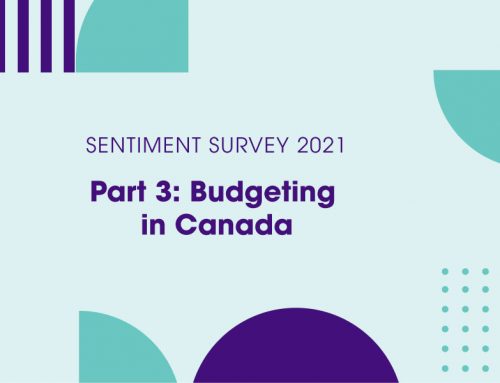How To Save In 2021
How much money should you save each month? This answer isn’t always simple but crosses our minds many times throughout the year. Saving is a crucial aspect of your budget and something that should be prioritized when creating a budget. Having savings can help you achieve your financial goals and allow you to be prepared in the case of an emergency. However, we often struggle to define how much we should save. Most importantly, each person’s savings goals can vary, depending on your income and monthly expenses.
Regardless of your income, many people try to save 20% of their monthly income. As a result, you can put 5% of your savings towards your emergency fund, and the other 10-15% towards building a retirement fund. From here, you can then decide if you have a particular savings goal you’d like to meet in the short-term. Let’s learn more about how much of your income you should save monthly or yearly.
Why Should I Save Money?
Money is a crucial component to achieving many goals in life, whether it’s owning your own home or attending the University of your dreams. When searching for reasons to save, it’s important to have a clear goal in mind to help you stay motivated. Each person has their own unique set of goals for their life, and to achieve them one must create a clean plan and save accordingly. If you are finding it difficult to figure out reasons to save, check out some of these goals below. You may find that depending on your age, or where you are in your life and career, your financial goals may differ.
Here are some examples of why you should save money:
- Saving For A Car: As soon as many young Canadian’s turns 16 or 17, they often have the goal in mind to start driving. This opens up a whole new world of independence, but it can be expensive. Regardless of your age, saving for a car is a good goal to have in mind.
- Education: In Canada, saving for your University education can be expensive. Whereas many people can obtain student loans, it’s important to save money to help repay this debt as quickly as possible. Having educational savings can help with accommodation, books and more.
- Rent and Apartment Deposit: If you’re looking to move out of your family home, saving towards rent and a deposit for an apartment is a great place to start and a good short-term goal to have.
- Emergency Fund: If you have numerous monthly bills, debt or loan repayments, it’s important to save a portion of your income towards an emergency fund. This can help keep you covered in the case of sudden job loss, or a medical emergency. Most importantly, having an emergency fund can provide you with peace of mind.
- Vacations: Saving for travel expenses is a great way to ensure you can go on the vacation of your dream. You can simply put money aside for flights, spending money and accommodation to help ensure that nothing is stopping you from going on that trip away. Whether you choose a staycation or flight to a sunny location (once it’s safe to do so pending COVID-19 regulations).
How To Save Towards Financial Goals
Once you’ve determined why you should save your money and what type of financial goals you have, it’s important to make a financial plan. Each person’s financial plan will look slightly different. For instance, we all earn a different income, have different fixed expenses and unique loan or debt payment commitments. Unfortunately, saving is easier said than done. We can often create numerous budgets and plans but avoid implementing these plans into our everyday life. Check out some ways you can save towards your financial goals.
1.Create A Budget
Regardless of whether you have small or large financial goals, creating a budget is a must to help you achieve them. A budget is defined as a financial plan for a defined period, often one year. It helps you figure out how much money you receive, spend and save. For example, it allows you to clearly visualize your income and what you spend daily, weekly and monthly.
To begin budgeting, you should follow these steps to help you get started:
1) Define your spending habits by checking your accounts and statements.
2) Use your calendar wisely to budget for irregular expenses
3) Calculate your total income (including your side-gigs, and other monthly cheques)
4) Identify your financial goals
5) Choose your budgeting technique and plan
6) Schedule a monthly budgeting review in your calendar
2.Define Your Financial Goals
As discussed above in why you should save, there is a wide range of financial goals you can work towards. It’s important to note, that not all financial goals can be achieved in a year. Because of this, it’s key to make sure you set realistic and achievable goals.
Most importantly, when setting financial goals, you should make sure you have a timeline in mind. Here, you can define your short-term, mid-term and long-term goals.
Let’s learn the difference between short-term, mid-term and long-term financial goals:
- Short-Term Goals: These are financial goals you aim to achieve within a short period of time. This could be between 6 months and three years. Examples of short-term goals could be pay off your credit card debt, starting an emergency fund, save for a vacation, rent or insurance.
- Mid-Term Goals: These are financial goals that may take between three to five years to achieve. Examples of these goals may be a down-payment for a mortgage, starting a business or paying off your student loan.
- Long-Term Goals: A long-term goal is a financial goal that may take a longer period of time to achieve. This could be anywhere from 10 to 30 years. For example, this could be paying off your mortgage, or saving a sufficient amount of money for retirement.
3)Track Your Spending
When trying to save money and reach your financial goals, it’s important to keep track of where you’re spending your money. This will help bring you back to reality, and for you to see exactly where your money is going each month. To help you keep track of your spending, MyMarble can help.
The MyMarble platform is a data-drive and artificial intelligence-driven platform that connects with your primary bank account, to allow you to see where your money is going. Alongside this, MyMarble will also recommend to you where you can spend your money more wisely. For example, towards debt payments or improving your credit score. Having a platform that will track your spending for you will make it easier for you to stay on top of your income, allowing you to concentrate on putting money aside for your savings, too.
4)Reduce Your Flexible Spending Costs
This one is important. We often spend our money throughout the month and towards the end, we’re wondering what did we even spend it on? This can be a direct result of overspending on your flexible expenses. Flexible expenses are things that you spend money on, that are not necessary for your everyday life. This may include streaming service subscriptions such as Netflix, Disney + and Crave, Spotify or Audible. Flexible expenses may often include gym memberships, dining out, over-splurging on clothes and shoes, or clicking buy now too many times on Amazon. If it’s unnecessary for your survival, it’s a flexible expense.
To reduce your flexible spending, it’s important to cut out spontaneous splurges and try tracking your spending (read tip 3 carefully). If you actively try to stop over-spending on your flexible or leisure expenses, you can then begin putting more money towards your savings. Just imagine you paid $10 for Netflix, $10 for Disney Plus and $10 for Crave. If you cut back on two, and keep your favourite, you’ve already saved $20 a month (which is $240 in a year). This shows the importance of keeping track of your flexible spending costs – if you make yourself aware of what you’re spending, you can find areas where you can reduce spending and save that money instead.
How Much Money Should I Save This Year?
As you can tell, savings are very particular to your own financial situation. There is no certain amount you should save in a year as it all depends on your income, and your financial goals. Many Candian’s who follow the 50/30/20 budgeting technique will use a general rule of thumb of 20% of their monthly earnings. But for some people, this is not feasible. To figure out how much money you should save, be sure to define what your financial goals are, create a realistic budget and reduce spending on unnecessary items. Then, you can decide how much you can afford to save per month.






